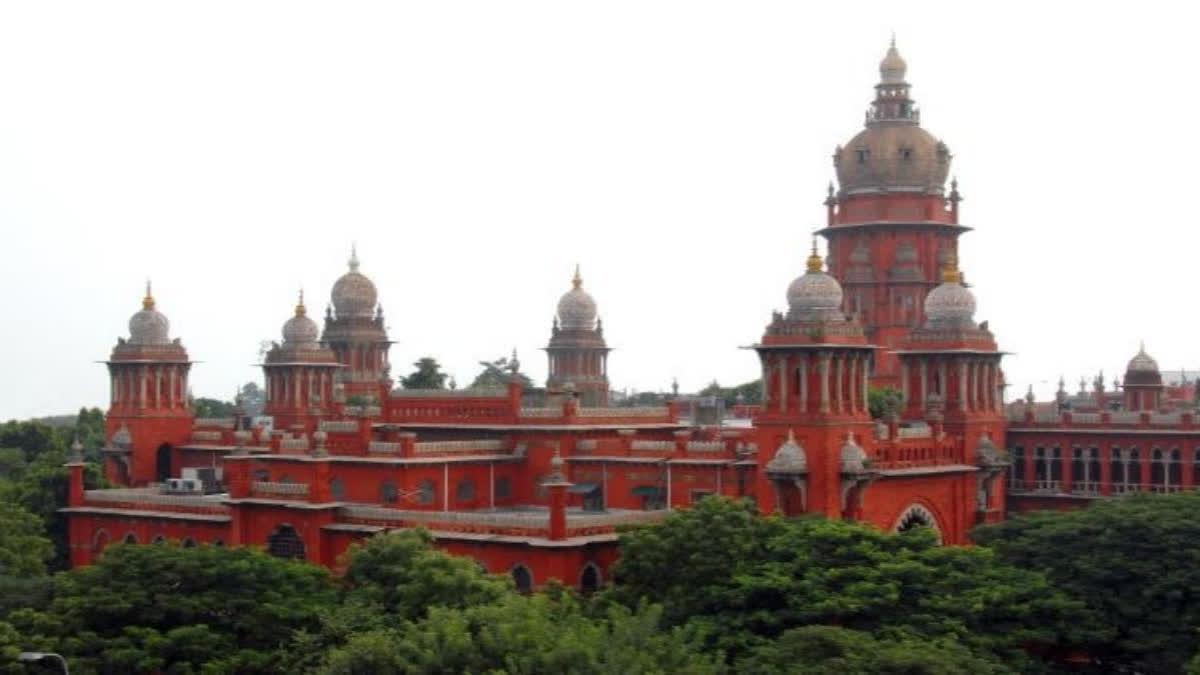Chennai: The Madras High Court on Tuesday declined to suspend a three year pirson term imposed on former Tamil Nadu special DGP Rajesh Das in a sexual harassment case, even as it observed that offences against women, girls and girl children were steeply increasing.
Dismissing the criminal miscellaneous petitions, Justice M Dhandapani also refused to exempt Das from surrendering before the trial court. Das was convicted and sentenced to three years' rigorous imprisonment by a Villupuram local court for allegedly sexually harassing a woman IPS officer in 2021.
Originally, Das had filed a criminal revision petition, assailing the order of the Principal District and Sessions Court, Villupuram, in and by which the conviction and sentence imposed on him by the Chief Judicial Magistrate, Villupuram dated June 16, 2023 were confirmed. During the pendency of this petition, he filed the present criminal miscellaneous petitions.
The judge said in cases involving outraging the modesty of women or indecent behaviour with them, the courts should be very circumspect and slow while granting suspension of sentence to the accused, who have been held guilty through concurrent judgments of courts below.
The judge said in the present case it involves a person who was holding a very high office in the police force. "In fact, holding the pinnacle of the post in the police force, viz., the post of Director General of Police (Law & Order)." The police force was a disciplined one in which persons holding even the base posts were required to exhibit the highest amount of discipline and integrity and they should project and conduct themselves as role models for the citizens of the country.
The judge said in the case on hand, the revision petitioner was alleged to have conducted himself in an indecent manner with his subordinate, a female employee. When the general public behave in an indecent manner with women, it is the police authorities who take action. They were looked up in high esteem with regard to the discharge of their duties without any fear or favour, the judge added.
The judge said however, in the present case, the revision petitioner being higher in the hierarchy in the police department was alleged to have conducted himself in an indecent manner with his subordinate, including the woman being intimidated from not filing complaint against him.
The judge said the gist of the contention was that the revision petition was not likely to be taken up at an early date and therefore, the inconsistencies, contradictions and infirmities in the evidence pointed out by the senior counsel appearing for the petitioner should prevail upon this court to suspend the sentence imposed on the petitioner pending consideration of the revision.
When this court weighs the said evidence, which was alleged to be inconsistent, but the inconsistencies, infirmities and contradictions, it was to be pointed out that the said infirmities should affect the substratum of the case, the judge added. They would have a much higher value when revision was taken up for consideration, but definitely at this point of time, when this court was considering the suspension of sentence, the contradictions pointed out on behalf of the petitioner were not of such a nature warranting an affirmative, the judge added.
Further, the main ground of attack on the appreciation of the case by the courts below rests on the evidence of the victim, which according to the senior counsel for the petitioner, does not have any corroboration. In cases of such nature, the courts were bound to weigh the evidence of the victim to arrive at a finding as to whether the said evidence was believable or not, the judge said.
"When the courts below have concurrently held the said evidence to be believable and trustworthy, sitting in revision and considering the petition for suspension of sentence, it would not be justifiable for this court to look into the whole of the evidence as the manner in which the appreciation has taken place requires to be looked into only while hearing the main revision," the judge added.
For considering the suspension of sentence the court has to find out whether the evidence adduced was so very unbelievable, which makes out a prima facie case which alone would give the benefit to the accused to seek suspension of sentence.
"However the evidence of PW1 (victim) coupled with the other materials do not in any way materially affect the substratum of the case and therefore, it would not be in the interest of justice if this court grants suspension of sentence, more so considering the fact that the revision petitioner was not a novice and in fact the revision petitioner was holding the post of DGP and a person of the said stature, coming from a disciplined force, ought to conduct himself in a proper manner..."
"...but the action of the revision petitioner has degraded the morale of the police force. The contradictions pointed out on behalf of the petitioner were not fit enough to consider the suspension of sentence, but which could be weighed only at the time of hearing the revision," the judge added.
Therefore the court was not inclined to grant suspension of sentence as sought for by Das. "Accordingly the petition for suspension of sentence is dismissed. Consequent upon the dismissal of the aforesaid petition, the petition exempting the petitioner to surrender before the trial court is also dismissed."



